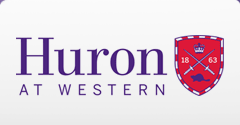Event Title
Roundtable 2: Globally Aware Pedagogy: Overcoming the Parochialisms of Internationalisation in the Classroom
Start Date
3-11-2014 1:30 PM
End Date
3-11-2014 3:30 PM
Description
This roundtable confronts the language of "internationalisation" in our academic activities. In this way, this roundtable seeks fundamental engagement with a term that serves as both a premise of core global awareness activities at Huron and other Canadian universities, but that, unfortunately, is rarely given consideration.
Particular questions to be addressed:
- In what ways may we already find negative forms of internationalisation in our courses and pedagogical methods?
- How do we develop global awareness and international knowledge beyond methods and languages that only translate the world into terms, ideas, and knowledge with which we are already familiar that support our self-privileged positions as knowers?
- How may we introduce international interest into our teaching such that others are not reduced to cultural, national, and ethnic essentialisms?
- How do we engage cultural difference(s) as sites of contestation and not mere boundaries?
- How do we learn from a world that we do not already think we know?
Roundtable 2: Globally Aware Pedagogy: Overcoming the Parochialisms of Internationalisation in the Classroom
This roundtable confronts the language of "internationalisation" in our academic activities. In this way, this roundtable seeks fundamental engagement with a term that serves as both a premise of core global awareness activities at Huron and other Canadian universities, but that, unfortunately, is rarely given consideration.
Particular questions to be addressed:
- In what ways may we already find negative forms of internationalisation in our courses and pedagogical methods?
- How do we develop global awareness and international knowledge beyond methods and languages that only translate the world into terms, ideas, and knowledge with which we are already familiar that support our self-privileged positions as knowers?
- How may we introduce international interest into our teaching such that others are not reduced to cultural, national, and ethnic essentialisms?
- How do we engage cultural difference(s) as sites of contestation and not mere boundaries?
- How do we learn from a world that we do not already think we know?

